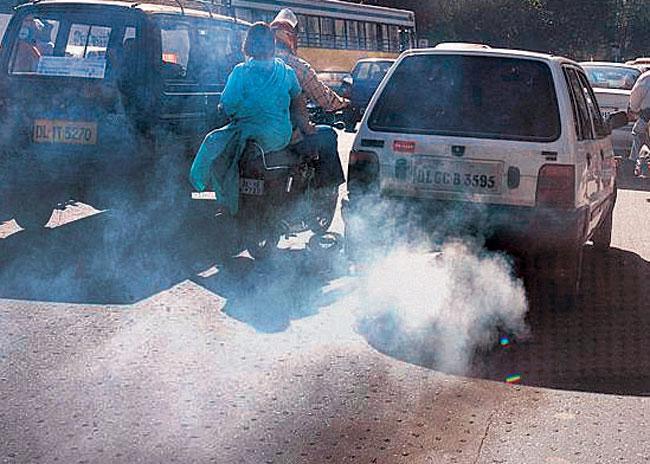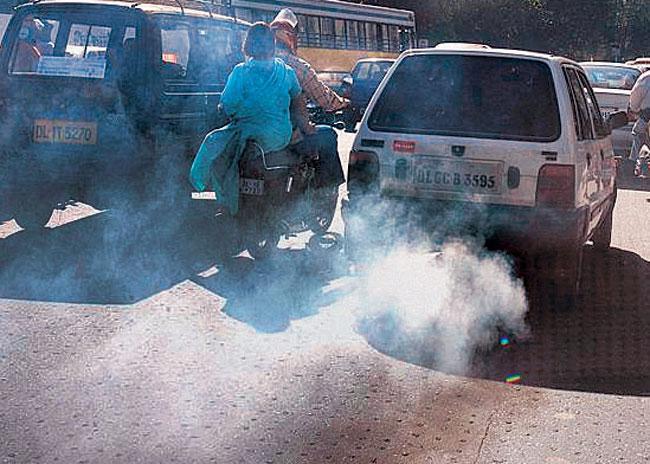
The reality behind Britain’s ban of the internal combustion engine
Share
Following France`s announcement a few weeks ago that it was banning the sale of fresh gas- and diesel-powered cars beginning in 2040, the internal-combustion engine took another smack today when the U.K. government followed suit, announcing that it too plans to ban fresh gas and diesel cars embarking that year and eliminate them from roads downright by 2050.
Whoa! What`s the rationale? In statements, the French and U.K. governments figure they`re just confirming trends: That EV development is already well underway, that by two thousand forty batteries are going to be far cheaper than today`s and that EV development will be far ahead of where it is today.
So is the beloved (around Autoweek HQ at least) ICE dead? How about our classic-car fleet? What happens to it? (Sniffle)
Luxury
It`s all too early to call, of course, and a gazillion factors to consider — the world`s two elephants in the car market, China and the U.S., for example: What are their plans? China already has big-time EV incentives. The country sometimes even makes noise about a ban on gas-powered vehicles. It`s stopped brief so far. One reason could well be that even with the government goosing the market, EVs are still less than one percent of the national fleet.
Over here, meantime, gasoline is still truly cheap, putting a serious hurt on an EV`s appeal. And don`t leave behind our $7,500 federal tax credit for the very first 200,000 electrified or plug-in hybrids sold. It`s anyone`s guess how far EV sales would plummet if those went away.
Meantime, the automakers` reactions are sure going to be joy to observe over the coming days weeks and months. For now, I`m guessing that they`re most likely thinking: “Not to worry — none of these politicians are going to be in office by the time this rolls around. Stable as she goes, people, stable as she goes.”
Green Cars
Will France actually be able to ban all gas and diesel vehicles by 2040?
The government of France announced plans to end the sale of gasoline and diesel vehicles by 2040, with ecology minister Nicolas Hulot unveiling a broad range of targets and initiatives timed to .
Talk about repeal and substitute.
For its part, Volvo said earlier this month that every car it sells will be electrified by 2019. It`s significant to note, Volvo didn`t say it`s pulling down gas- and diesel-powered models. It said every Volvo will use either some sort of hybrid powertrain (and some of those powertrains are going to be optional, not standard) or be an EV. The company also said it`s launching five EVs inbetween two thousand nineteen and two thousand twenty one and it plans to have sold a million electrified cars by 2025. And part of the U.K.`s announcement was that a Mini EV is going into production in two thousand nineteen using a BMW-manufactured electrified powertrain.
Like I said, it`s going to be joy to observe. Meantime, I`m going to spend as much time as I can in my `48 Willys, just in case.
Wes Raynal – Wes Raynal joined Crain Communications’ circulation department while still in college. When he graduated in 1986, he became a reporter for Autoweek sister publication Automotive News. He has worked as Autoweek’s associate editor, news editor, motorsports editor and executive editor before being named editor in 2009.
Britain bans the internal combustion engine, but what does it indeed mean?
The reality behind Britain’s ban of the internal combustion engine
Share
Following France`s announcement a few weeks ago that it was banning the sale of fresh gas- and diesel-powered cars kicking off in 2040, the internal-combustion engine took another smack today when the U.K. government followed suit, announcing that it too plans to ban fresh gas and diesel cars embarking that year and eliminate them from roads downright by 2050.
Whoa! What`s the rationale? In statements, the French and U.K. governments figure they`re just confirming trends: That EV development is already well underway, that by two thousand forty batteries are going to be far cheaper than today`s and that EV development will be far ahead of where it is today.
So is the beloved (around Autoweek HQ at least) ICE dead? How about our classic-car fleet? What happens to it? (Sniffle)
Luxury
It`s all too early to call, of course, and a gazillion factors to consider — the world`s two elephants in the car market, China and the U.S., for example: What are their plans? China already has big-time EV incentives. The country periodically even makes noise about a ban on gas-powered vehicles. It`s stopped brief so far. One reason could well be that even with the government goosing the market, EVs are still less than one percent of the national fleet.
Over here, meantime, gasoline is still truly cheap, putting a serious hurt on an EV`s appeal. And don`t leave behind our $7,500 federal tax credit for the very first 200,000 electrical or plug-in hybrids sold. It`s anyone`s guess how far EV sales would plummet if those went away.
Meantime, the automakers` reactions are sure going to be joy to witness over the coming days weeks and months. For now, I`m guessing that they`re very likely thinking: “Not to worry — none of these politicians are going to be in office by the time this rolls around. Constant as she goes, people, stable as she goes.”
Green Cars
Will France actually be able to ban all gas and diesel vehicles by 2040?
The government of France announced plans to end the sale of gasoline and diesel vehicles by 2040, with ecology minister Nicolas Hulot unveiling a broad range of targets and initiatives timed to .
Talk about repeal and substitute.
For its part, Volvo said earlier this month that every car it sells will be electrified by 2019. It`s significant to note, Volvo didn`t say it`s ripping off gas- and diesel-powered models. It said every Volvo will use either some sort of hybrid powertrain (and some of those powertrains are going to be optional, not standard) or be an EV. The company also said it`s launching five EVs inbetween two thousand nineteen and two thousand twenty one and it plans to have sold a million electrified cars by 2025. And part of the U.K.`s announcement was that a Mini EV is going into production in two thousand nineteen using a BMW-manufactured electrical powertrain.
Like I said, it`s going to be joy to witness. Meantime, I`m going to spend as much time as I can in my `48 Willys, just in case.
Wes Raynal – Wes Raynal joined Crain Communications’ circulation department while still in college. When he graduated in 1986, he became a reporter for Autoweek sister publication Automotive News. He has worked as Autoweek’s associate editor, news editor, motorsports editor and executive editor before being named editor in 2009.
Britain bans the internal combustion engine, but what does it truly mean?
The reality behind Britain’s ban of the internal combustion engine
Share
Following France`s announcement a few weeks ago that it was banning the sale of fresh gas- and diesel-powered cars commencing in 2040, the internal-combustion engine took another smack today when the U.K. government followed suit, announcing that it too plans to ban fresh gas and diesel cars embarking that year and eliminate them from roads entirely by 2050.
Whoa! What`s the rationale? In statements, the French and U.K. governments figure they`re just confirming trends: That EV development is already well underway, that by two thousand forty batteries are going to be far cheaper than today`s and that EV development will be far ahead of where it is today.
So is the beloved (around Autoweek HQ at least) ICE dead? How about our classic-car fleet? What happens to it? (Sniffle)
Luxury
It`s all too early to call, of course, and a gazillion factors to consider — the world`s two elephants in the car market, China and the U.S., for example: What are their plans? China already has big-time EV incentives. The country at times even makes noise about a ban on gas-powered vehicles. It`s stopped brief so far. One reason could well be that even with the government goosing the market, EVs are still less than one percent of the national fleet.
Over here, meantime, gasoline is still truly cheap, putting a serious hurt on an EV`s appeal. And don`t leave behind our $7,500 federal tax credit for the very first 200,000 electrical or plug-in hybrids sold. It`s anyone`s guess how far EV sales would plummet if those went away.
Meantime, the automakers` reactions are sure going to be joy to observe over the coming days weeks and months. For now, I`m guessing that they`re most likely thinking: “Not to worry — none of these politicians are going to be in office by the time this rolls around. Stable as she goes, people, constant as she goes.”
Green Cars
Will France actually be able to ban all gas and diesel vehicles by 2040?
The government of France announced plans to end the sale of gasoline and diesel vehicles by 2040, with ecology minister Nicolas Hulot unveiling a broad range of targets and initiatives timed to .
Talk about repeal and substitute.
For its part, Volvo said earlier this month that every car it sells will be electrified by 2019. It`s significant to note, Volvo didn`t say it`s pulling down gas- and diesel-powered models. It said every Volvo will use either some sort of hybrid powertrain (and some of those powertrains are going to be optional, not standard) or be an EV. The company also said it`s launching five EVs inbetween two thousand nineteen and two thousand twenty one and it plans to have sold a million electrified cars by 2025. And part of the U.K.`s announcement was that a Mini EV is going into production in two thousand nineteen using a BMW-manufactured electrified powertrain.
Like I said, it`s going to be joy to observe. Meantime, I`m going to spend as much time as I can in my `48 Willys, just in case.
Wes Raynal – Wes Raynal joined Crain Communications’ circulation department while still in college. When he graduated in 1986, he became a reporter for Autoweek sister publication Automotive News. He has worked as Autoweek’s associate editor, news editor, motorsports editor and executive editor before being named editor in 2009.
